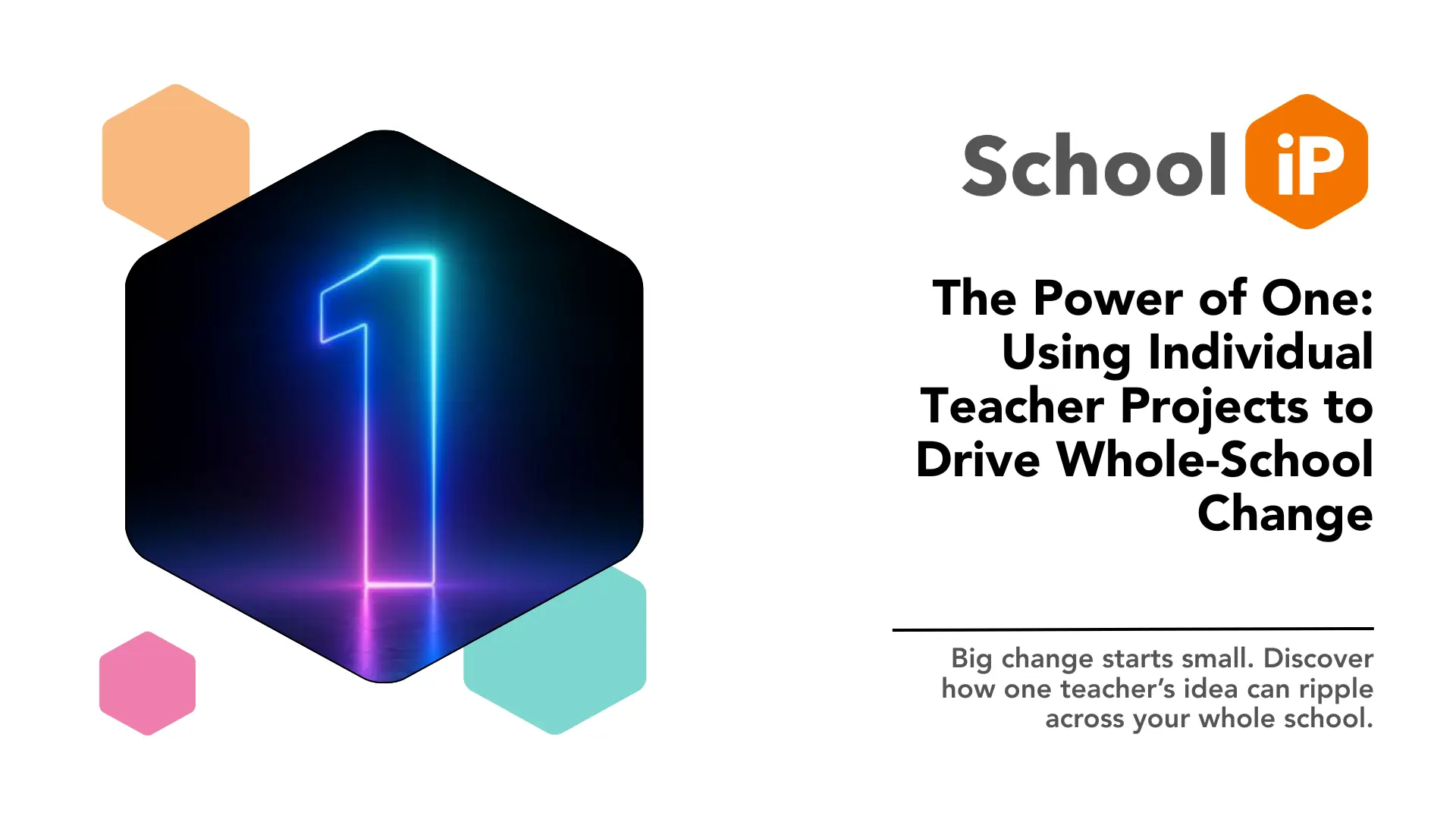The Power of One: Using Individual Teacher Projects to Drive Whole-School Change


In many schools and colleges, the path to improvement is paved with top-down initiatives, formalised CPD, and one-size-fits-all strategies. But what if real change starts elsewhere? What if the most powerful force for school improvement isn’t a new policy or INSET day, but one teacher, with one idea, supported to experiment?
At Newham College, this concept was brought to life through an initiative called “Power of One - Innovate to Elevate”. Teachers were encouraged to take ownership of a small experiment, an idea, or an approach they were curious about, connected to their context and students. The results were anything but small.
These experiments ranged from embedding AI tools to improve feedback to creating student-led community cafés that built communication skills and confidence. What they shared was a sense of ownership, relevance, and impact, not only for the teacher but for their students, colleagues, and the wider school culture.
So, what made it work?
The success of teacher-led projects depends on a culture of professional trust. Teachers must feel safe to try something new, without fear of being judged. At Newham, observations were non-graded and framed as coaching conversations. Projects weren’t imposed, they were chosen. This gave teachers the space to explore without pressure.
While each experiment was unique, they weren’t disconnected from the college’s goals. Teachers were encouraged to link their ideas to frameworks like the Education & Training Foundation’s professional standards, sustainability goals, or emerging EdTech strategies. This meant innovation wasn’t random, it was relevant.
With CollegeiP, colleges can replicate this by allowing staff to set their own development objectives, link them to key frameworks, and record reflections and impact, all in one place.
One of the most effective ways to scale innovation is simply to showcase it. At Newham, weekly newsletters celebrated individual experiments, while internal events gave teachers a platform to share what worked. Suddenly, what began as “my project” became “our practice”.
With CollegeiP's evidence logs, CPD records, and lesson observation tools, colleges can easily capture, share, and celebrate emerging good practice, amplifying its reach across departments and year groups.
The impact of these projects wasn’t just anecdotal. Teachers reflected on how their experiments enhanced pedagogical content knowledge, the sweet spot where subject expertise meets effective teaching methods. There were tangible benefits for students too: more engagement, more ownership, and in many cases, improved outcomes.
By tracking development and impact over time, CollegeiP helps leaders gather evidence that links CPD to improved teaching and learning, supporting better conversations with governors, inspectors, and staff.
Whether you're in a school, trust, or college setting, the message is clear: big change doesn’t always need big programmes. Sometimes, it starts with one teacher, one idea, and a platform that makes it easy to grow.
If you're ready to move from performance management to purposeful development, CollegeiP can help you build a culture where every teacher becomes a driver of improvement.